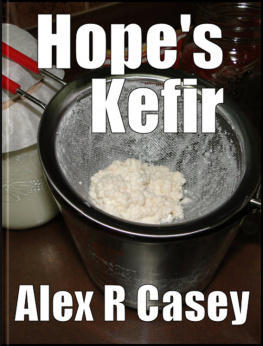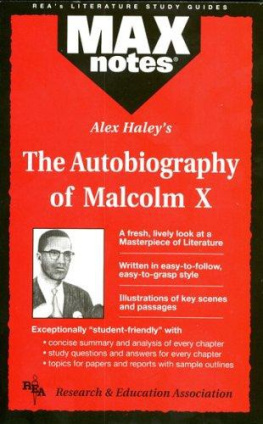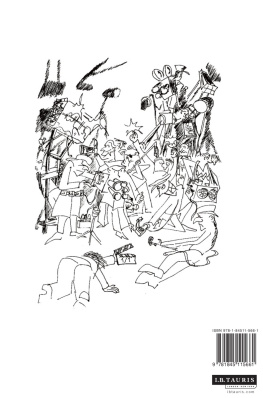PREFACE
Hey Bernard, Dean Levitz said leaning into the office, I want you to meet Alexhes going to be doing a research project with us. My heart soared. For months I had been meeting with admissions officers from across the region in an attempt to gain access to a research site for this ethnography of college admissions. I had been refining my approach and arguments, but responses from admissions officers ranged from exasperation to offense. Over six months, most of my attempts had been bottom-up approaches, but at Ravenwood, it was the top-down approach that finally yielded a site willing to work with me. A Ravenwood dean in my personal network introduced me to Ravenwoods new president, who then introduced me to the dean of admissions, Karl Levitz. When Levitz offered to introduce me to his staff after our first meeting, I thought it was just a polite gestureuntil the above exchange. Access achieved, I thought to myself.
Of course, in retrospect, this notion of access seems almost quaint, and in putting together this book, I have thought long and carefully about just what I had access to and how my point of entry has shaped whatever that was. Here I briefly outline how I both came to and went about this study to shed a bit more light on what access may mean with this kind of research and in this case. After some reflection, a constellation of factors seemed to have facilitated my access to Ravenwood when many other institutions had turned me down. First, the president was new and was himself trying to better understand the organization and the challenges it faced; my study would not reflect on his performance. Likewise, Dean Levitz was new in the role, and enrollments had stabilized under his recent tenure; he may have seen this as an opportunity to document his successes to internal factions. In addition, some of the concerns with granting accesseven with assurances of confidentialityexpressed by institutions had been about the possibility of tarnishing the institutions brand. Ravenwood, however, did not have a strong and cohesive brand, and so there was not a strong public image to blemish. And, of course, there was the privilege I carried with memy class, my race, my gender, my credentials, and the personal networks that introduced me into power networks at Ravenwood. These were all particularly relevant, given my object of inquiry.
It is almost taken for granted that college admissions should be a simple matter of sorting students into meritorious bins, with the best heading off to Harvard, Princeton, and Yale, and the rest taking up their appropriate slots. Many assume that there is nothing really wrong with this system. Aside from some hiccups, proponents of the current admission system might say sorting people in this way works out quite well. Standardized exams, high school transcripts, essays, recommendation letters, and interviews supposedly capture the objective merit in each individual, and prestige is well deserved at the most elite levels. Admissions at selective institutions is based on extremely fine distinctions, and students line up to take every open seat.
And then there is college for everyone else.
The roots of this project can be traced back to a simple observation: although every college and university has an Office of Admissions, some of these offices are tasked primarily with bringing people in, while others are tasked primarily with keeping people out. And despite this contradiction, institutions of both types contribute to our so-called meritocracy. Meritocracy, the notion that social structures are built to recognize and reward persons solely on individual merits (and that they largely succeed in this effort), has long been at the heart of debates about the place of education in American society. Our resultant notions of merit are most often understood as inhering in consistent and individual personality traits, such as competency, intelligence, and diligence. And yet, as individuals, we are embedded in complex social worlds that are culturally specific and historically contingent, and these notions of merit arise from them. It is this culturally specific and historically contingent aspect of merit that I am most interested in throughout this work, and thus the reader should take note that I reference merit throughout more as a cultural and ideological outlook than I do as the particular something that individuals or institutions have or should have.
On the whole, we seem more concerned with the institutions that keep people out than we are with the ones that focus on bringing people in. I suppose it is natural to be interested, to wonder who the best are, how they are identified, and how we (or our children) might get classified in the same way. Yet it seems odd to spend so much time on the institutions that least reflect the norm. And so in preparation for this study, I was determined to explore these processes in a place that was not in a position to sit back and wait for the lines of applicants to beg for admission. Of course, sometimes this took some explanation. When I tracked down a well-regarded sociologist to ask his advice on the project, he asked me, Whats interesting about mediocre students attending a mediocre college?
In many ways, this book is my response to that admittedly rhetorical question.
One clear reason for the need to study less selective colleges and universities is that, by many accounts, it is precisely such institutions that are in crisis. The project to extend higher education to everyone has been somewhat successful in the United States: record numbers have been attendingand, to a lesser extent, graduating fromcollege. Yet, despite data suggesting that college graduates have been cushioned from the brunt of the economic crisis, confidence in the value of college degrees has been shaken. Selective institutions live in privileged bubbles (ones built out of large endowments, pervasive brands, and momentum) that cushion them from the vicissitudes of the market.
Ravenwood College, where I spent one year doing ethnographic research, was a small, private, nonprofit institution dedicated to social justice and serving traditionally underprepared students. Ravenwood was not shielded from the market. To survive in the higher education marketplace, the college had to operate like a business and negotiate complex categories of prestige. In fact, a few years before my study, student enrollment had fallen, and the institution had been forced to lay off about a hundred staff and five faculty members. Rather than having the luxury of long wait-lists to take open seats, admissions staff were burdened by low enrollments and worked tirelessly to fill empty seats with students. Despite being a small local college without a broadly recognized brand, Ravenwood remained an expensive investmentone that about 80 percent of its students took out student loans to pay for. Such students demonstrated a hope that Ravenwood and the credential they conferred would be valuable in the labor market; Ravenwood needed to cultivate that hope in their students.
I take as a starting point the notion not only that questions of recruitment and admissions are as relevant for less selective institutions as they are for selective ones but that due to the precarious financial position of many less selective institutions, the consequences of these activities are more visible; there are pressing tensions for these institutions. I untangle these tensions with ethnographic encounters, such as when admissions counselors at Ravenwood poach applicants from one another, when prospective students cheat on entrance exams, when the college recruits homeless students, or when an admissions officer invites an applicant to take a red pen to her essay as a condition of admission.











